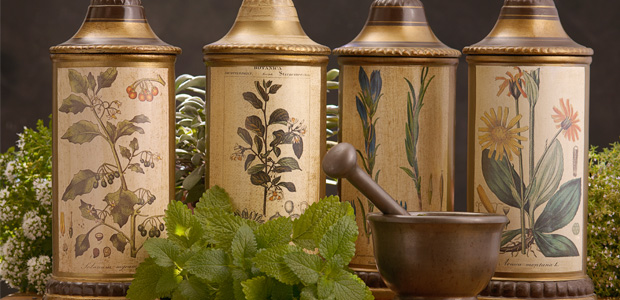Advertisement
Medical Advisor
People often ask the question: “How does herbal medicine work and what can it do best?” Unlike synthetic pharmaceutical drugs, which often leave the body in a toxic state, many medicinal plants are able to decongest and detoxify tissues. This gives “green” medicine a great advantage in dealing with long-standing or chronic problems. The herbs … Continued

People often ask the question: “How does herbal medicine work and what can it do best?” Unlike synthetic pharmaceutical drugs, which often leave the body in a toxic state, many medicinal plants are able to decongest and detoxify tissues. This gives “green” medicine a great advantage in dealing with long-standing or chronic problems. The herbs clear away the debris and waste materials that have accumulated inside the body.
For example, herbal remedies for coughs do not suppress the cough reflex as in the allopathic approach. Instead, they improve the functioning of the organs, restore vitality and make additional energy available for healing.
Plants that restore the liver (such as artichoke juice and dandelion root taken 15 minutes before meals) account for the outstanding success of phytotherapy in treating dermatological problems such as psoriasis, eczema, skin allergies and acne. Of course, diet is critical so processed food must be avoided.
Many digestive problems respond well to herbal remedies. Sufferers of chronic indigestion will usually benefit from using carminative herbs such as fennel seed (Foeniculum vulgare) or anise seed (Pimpinella anisum). Take in the form of a tea after each meal by mixing one teaspoon (5 mL) of fennel or anise seed in one cup (250 mL) of boiling water.
Sluggish bowels–which may cause other problems–can be helped with plants that relax the nervous system. Lemon balm (Melissa officinalis) can be taken freely as a tea. Ease the passage of the stools with two teaspoons (10 mL) of psyllium seed (Plantago psyllium) soaked five minutes in a cup (250 mL) of warm water, and taken each morning.
Ulcerative problems in the digestive tract can be helped with plants that soothe the digestive system. The best plant is camomile because it has tissue healing properties and anti-inflammatories.
Women who suffer from menstrual irregularities, painful periods and menopausal problems can also benefit from herbal medicines that gently regulate the female cycle. Chaste tree berry (Vitex agnus castus) is one of the best hormone balancers for menstrual irregularity. For menopause, many women benefit from black cohosh (Cimicifuga racemosa).
Antiseptic herbs are very important in the treatment of urinary tract infections. A tea made from thyme (Thymus vulgaris), calendula petals (Calendula officinalis) or uva ursi leaves (Arctostaphilos uva-ursi) is often used.
Recently, the use of the extract of stinging nettle root (Urtica dioica radix) has been recommended for use with benign prostate conditions. The root extract of stinging nettle is also recommended for difficulties in urination associated with stage one and two prostate adenoma.
Respiratory problems have some of the most outstanding successes with the herbal approach. Certain plants help calm bronchospasms in asthma and allergies. They can also prevent the accumulation and formation of thick viscid mucus, while working deep in the lungs as expectorants to resolve the stagnation. This helps to prevent re-infection. Yarrow (Achillea millefolium) is a good herb for restoring the mucous membranes.
Some of the best herbs for respiratory problems include thyme, white horehound (Marrubium vulgare), elecampane (Inula helenium), ground ivy (Glechoma hederacea) and plantain (Plantago lanceolata). Bronchitis, sinus problems and respiratory allergies all benefit from these. It is important to avoid using sugar, white flour, and dairy products which create mucus.
Don’t expect your herbal medicine to work miracles overnight. Changing old lifestyle patterns and restoring tissues take time. If you stick to it, these changes will be permanent and you will benefit from greatly improved health.
References:
- Wichtl, Max. Ed. Herbal Drugs and Phytopharmaceuticals: A handbook for practice on a scientific basis, 1994.
- Blumenthal, Mark, Ed. German Commission E Monograph, 1998.
As announced in our March issue, there is a new format for the medical advisor column. We now have four advisors who will address readers’ letters from their areas of expertise.
- Jozef Krop, MD: for environmental medicine
- Stephen Malthouse, MD: for homeopathic medicine
- Michael Lyon, MD: with a specialty in attention deficit syndrome
- Keith Stelling, MNIMH: for herbal medicine
Obtaining Help
You can direct your letters to any one of the above. If you don’t specify a choice, we will decide who would be most appropriate. Please include a cheque or postal money order for $20 made out to: Canadian Health Reform Products Ltd., 7436 Fraser Park Drive, Burnaby BC, V5J 5B9




